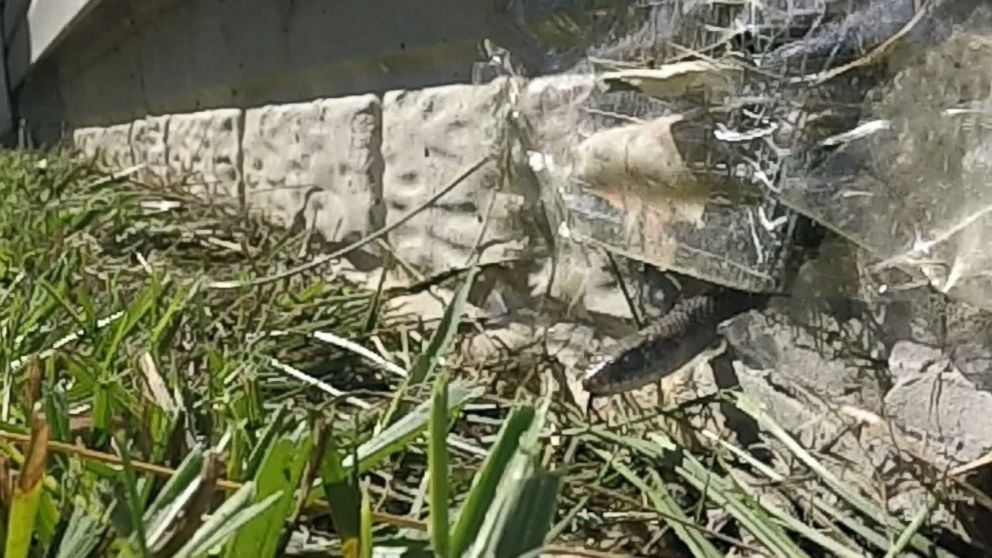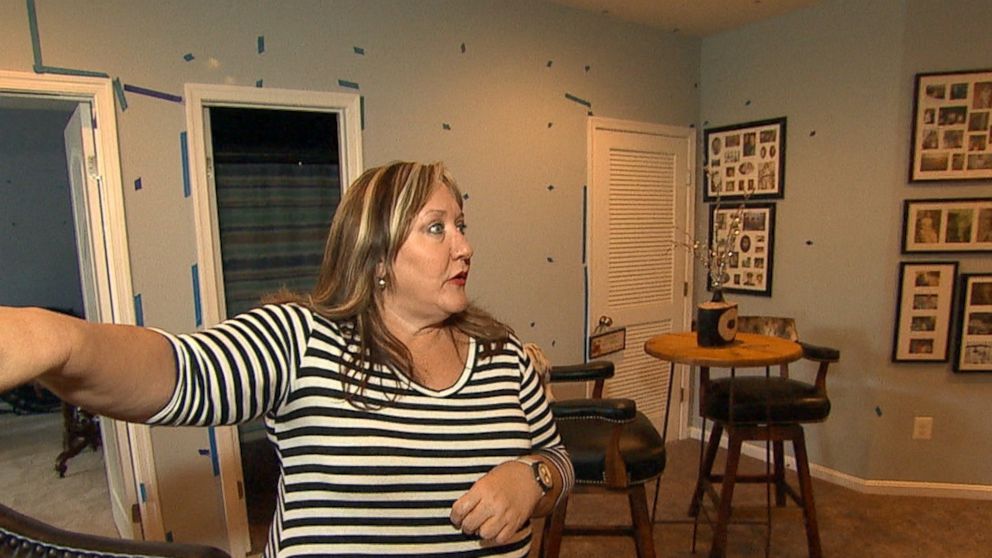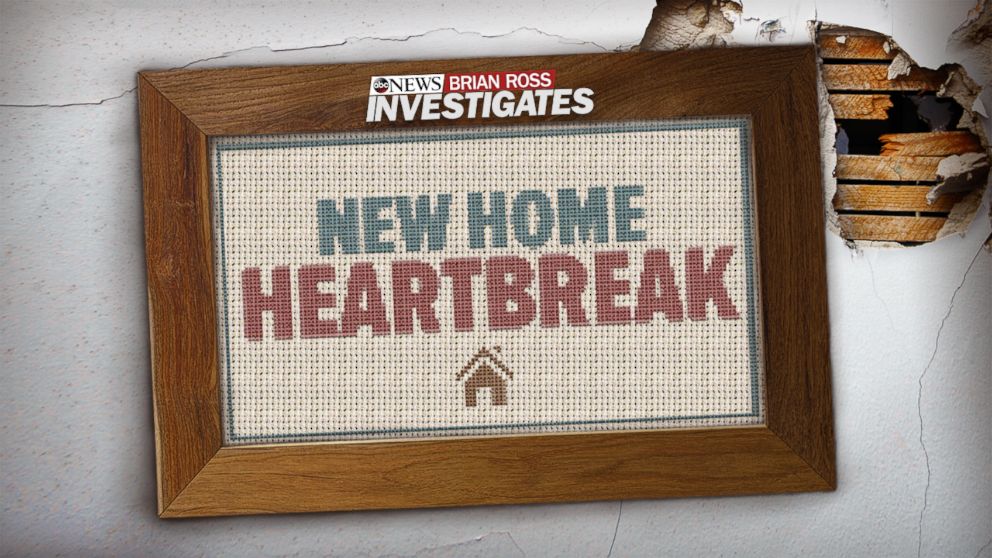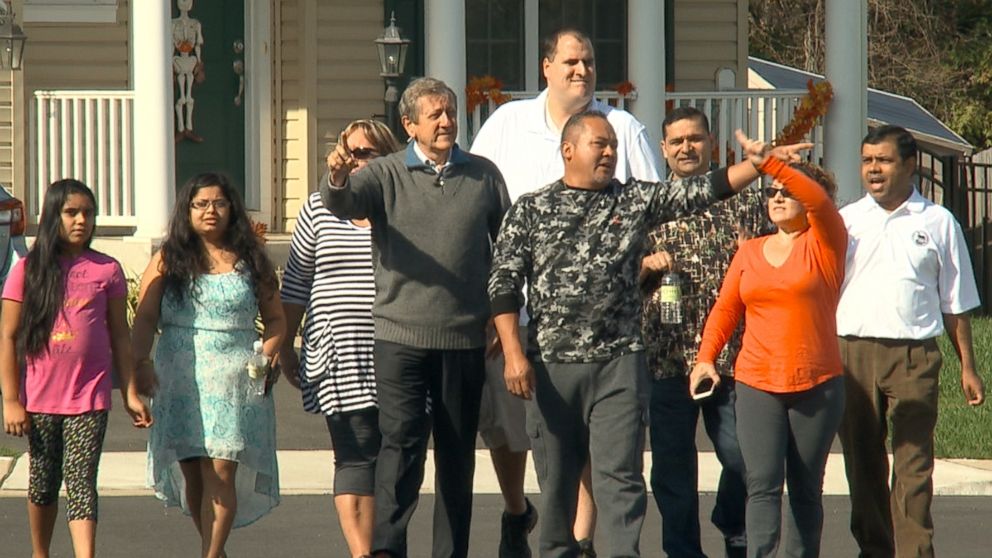Investigation: New Home Heartbreak
— -- In Seattle, the walls were literally melting.
In Birmingham, the floors bounced and creaked as they were walked on.
In Tampa, bricks fell from the chimney, preventing anyone from parking in the driveway.
In suburban Washington, D.C., holes in the foundation led to an infestation of rodents under the house -- and at least one large snake.
Homeowners say it's problems like these that are turning American dream homes into nightmares, and that builders are slow or flat out refuse to fix the problems they created, as found in a recent ABC News "Nightline" investigation with over a dozen local ABC affiliates.

"You continue living in something no one can give you answers for. No one’ll fix it," Jennifer Wyton told ABC News' Chicago affiliate WLS after she said her family discovered in their new home that the window seals were misaligned, there were cracks in the ceiling, the front door had to be replaced and house, built in northern Illinois, was missing insulation.
"We had ice that formed on the inside of our house. So all of our electrical outlets and light switches on the West side of the house were covered with like a half an inch of ice. The wood floors along the West side had ice going along the whole side of them," she said. "It was our house. It was where we lived. And we just had to walk away from it."
Tune in for more on this Brian Ross investigation on "World News Tonight With David Muir" followed by the full report on "Nightline".
The U.S. has recently seen a home building boom, with tens of thousands of new homes going up every year. The big national builders, including the biggest, D. R. Horton, promise high quality.
But ABC News found an industry also inundated with complaints, so much so that D. R. Horton told investors in its latest Securities and Exchange Commission filing that it has set aside some $400 million in each of the last two years to deal with hundreds of construction defect claims in its brand new homes. The company said in filings that this was the "ordinary course of business."
It's not so ordinary for the homeowners like Jackie Walker, a freelance makeup artist who works for ABC News and other media outlets in Washington, D.C. After D. R. Horton built her home, she said the house experienced "nail popping," where nails literally pushed back out of the walls. She marked hundreds of them with blue tape.
"My house looks like it has the measles," Walker said. "I mean, it's literally every nail. And every beam, there's a seam. Every crack, every molding around the stair, the trim around the walls, everything is cracked... It was very upsetting because it's the most expensive purchase any of us are going to make."

Bill Loden, a former president of the American Society of Home Inspectors, said the problems with Walker's home were "excessive by any standard" and that it's a "real problem."
Walker said she had to go to war with D.R. Horton to get it all fixed, and it still is not, well after her warranty expired.
"It's been a nightmare," she said. "In just the first year, I had 23 appointments and they missed 17 of those."
A spokesperson for D.R. Horton said they have reached out to address the problems that homeowners in Jackie's subdivision say exist. Some homeowners have claimed the company seems to have waited them out until their warranties expired.
Jerry Howard, CEO of the National Association of Home Builders, said he's never heard of that happening and generally defended home builders.
"I think American consumers expect a perfect home," he said. "There's no such thing as a perfect home, and so I think that there are often disputes that arise out of that."
Howard said he expects the home building industry to put up just under 1 million homes this year and said in an interview that "the number that are delivered with happy customers, happy outcomes, far exceed the number that end up in the kind of situations [ABC News] is describing." Howard said he did not have statistics on hand to reinforce his point.
Many times such disputes are settled not in courts, but instead require what's called mandatory arbitration, in which disputes are settled by outside parties known as arbitrators. This arbitration can't be appealed and is often kept in secret.
"They [home builders] like arbitration because it favors them," Vickie Pynchon, an attorney who served for years as an arbitrator in construction defect cases, told ABC News. "Even though it's supposed to be neutral and unbiased."
Pynchon said arbitrators know they won't be hired again if they come down too hard on builders, which means, as she said, "the secret deck is stacked against the homeowner."
The home building industry and the American Arbitration Association (AAA) disagree and argue that arbitration is a fair and efficient way for home builders and homeowners to settle disputes without bogging down an overburdened court system.
The AAA said in a statement to ABC News that its roster of arbitrators is "composed of independent arbitrators who have a range of subject matter expertise and experience and include lawyers familiar with construction disputes as well as industry professionals such as architects and engineers."
It said that less than half of arbitration cases proceed to an award before they're otherwise settled, and when they do, the homeowners are identified as the "prevailing party" a little more than half the time.
Howard said his organization does not make any recommendations about arbitration to home builders, and told ABC News he did not know how many cases go into arbitration.
"Frankly, I don't see this issue as being the crucial issue for housing in our country," he said.
But it is a crucial issue for Americans who want their homes fixed, and its an issue that's likely to persist as more homes go up, faster than ever.
"People look at a house and they start imagining their family get-togethers," home inspector Loden told ABC News. "They start thinking of all the fun we're going to have here. And if you look at it entirely from that direction, then you could leave yourself open to some things that you weren't expecting."
For the "Nightline" investigation, ABC News teamed up with our affiliates across the country. Check out the map below, or if you're on mobile TAP HERE, to see the reports in your region.

ABC News' Kalyn Wilson and Lizzie Yang contributed to this report. Location assistance for an interview was provided by Loyola Law School, Los Angeles.




